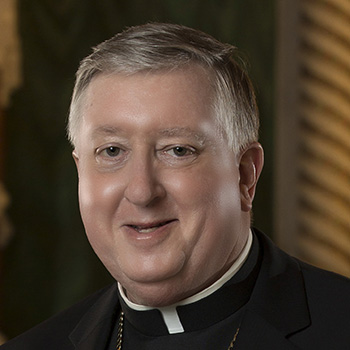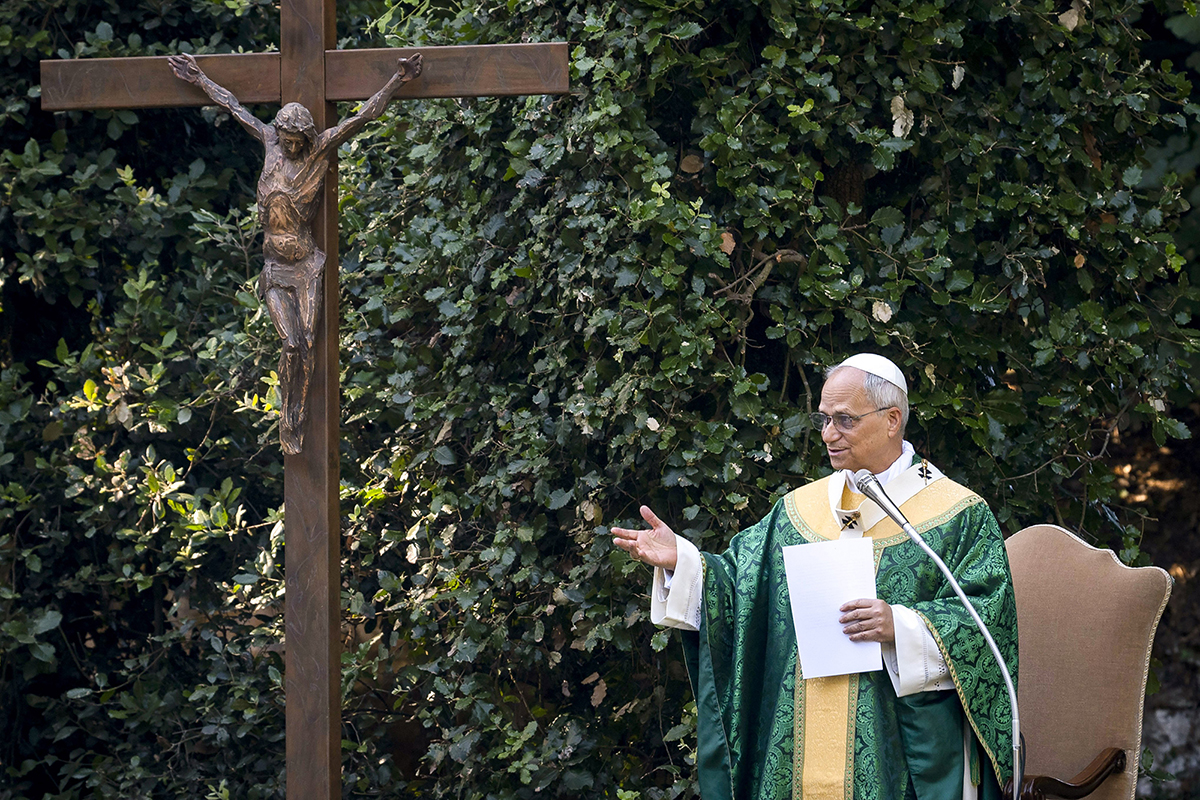SERVE THE LORD WITH GLADNESS | After the Ascension, Jesus’ presence to the disciples —and us — changed
This change has lessons for us as we prepare for new parish structures and a new evangelization

Dear brothers and sisters in Christ,
“Now I am leaving the world and going back to the Father.” That’s the closing line of this week’s readings, and we read it just before the Ascension on purpose: Big changes are in store for the disciples!
In a beautiful reflection on the change that takes place at the Ascension, St. Leo the Great once said: “And so our Redeemer’s visible presence has passed into the sacraments … He now began to be indescribably more present in His divinity to those from whom He was farther removed in His humanity.”
This change worried the disciples at first. Jesus was taking away how He had been present to them up to this point. Since they couldn’t imagine any other way of His being present, they only thought of the change in terms of what they would lose. But Jesus Himself likened it to the experience of a pregnant woman giving birth: 1) There’s a change in how the child is present to the mother, and vice-versa. 2) The process of transition is not easy for either. 3) Both rejoice afterward in this new mode of presence.
What a great set of lessons for us as we stand on the brink of the parish changes that will be part of the All Things New process!
The readings for the week tell us about another significant change in the early Church. This one is announced in the line: “Paul left Athens and went to Corinth.” That simple line contains the seed of a profound lesson for the new evangelization.
In Athens, Paul made his famous speech at the Areopagus. It was highly cultured and beautifully crafted. It should have won converts! But, though it was a good try, it bore little fruit. Only a few people really listened, heard the message and became believers. The outcome, after this one speech, is stated plainly: “And so Paul left them.”
In Corinth, Paul tried something different: He proclaimed the Cross. In short, he tried a new method of evangelization. The results were stunning: “Many of the Corinthians who heard believed and were baptized.” Because this new method of evangelization was bearing such good fruit, Paul stayed in Corinth much longer — a year and a half.
There’s a lesson in that for us!
Like Paul in Athens, we’ve tried some methods of evangelization that were good attempts and perhaps deserved to win converts, but have borne little fruit. We’ve tried fitting in with the culture; it hasn’t borne fruit. We’ve tried letting our actions speak for themselves; it hasn’t borne fruit. We’ve tried letting our programs evangelize; it hasn’t borne fruit. It’s time for us, like St. Paul, to leave those methods behind and try new methods of evangelization.
Rest assured: The content of our faith won’t change! We’re blessed to receive and hand on the deposit of faith, a precious treasury of healing truths! But the manner of our proclamation — how we present those truths to the world — has to undergo continual refinement.
So, when I announce the changes to parishes, I’m also going to have some things to say about a new evangelization. I hope, and firmly believe, new parish structures and a new evangelization will bear good fruit.





